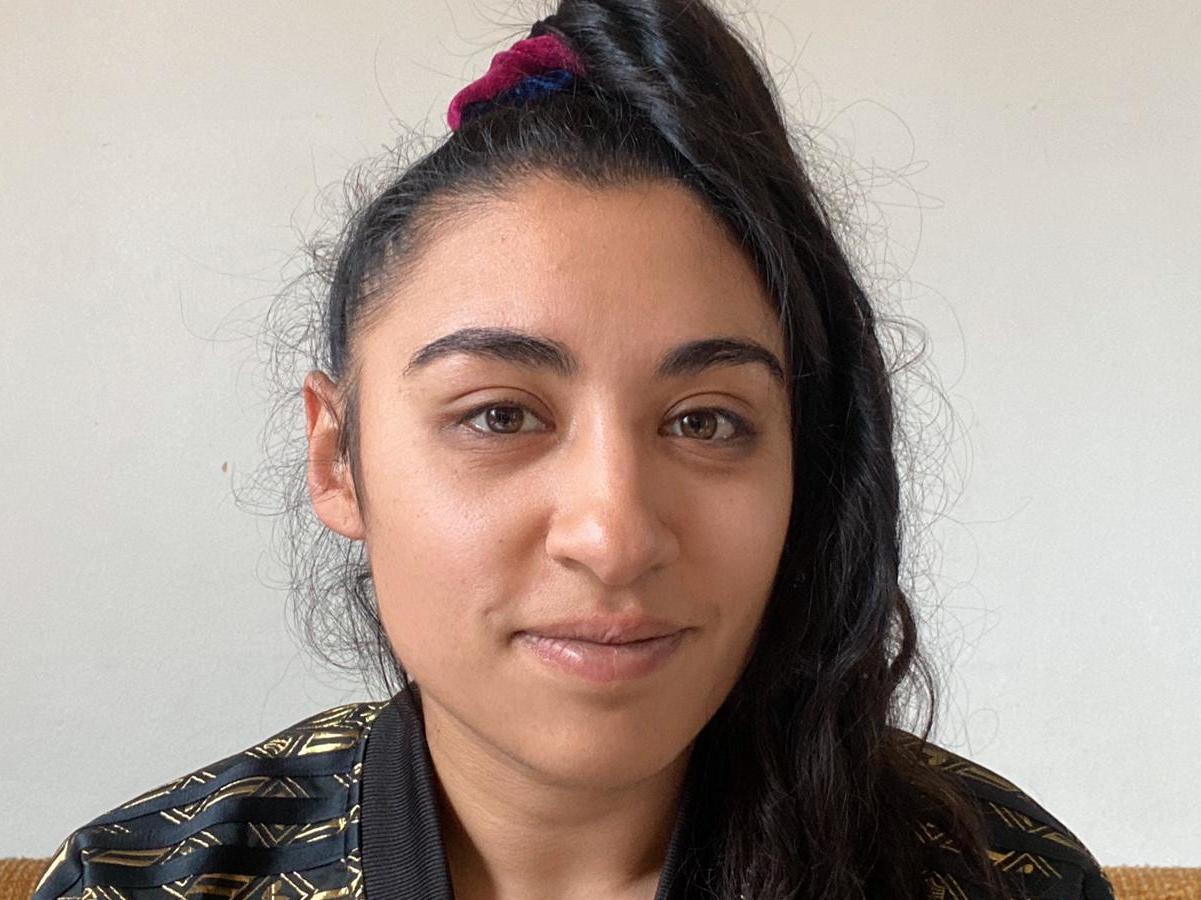Help The Hungry: More than 4,000 ‘mutual aid’ groups set up across UK to help struggling neighbours get food
‘Who better than neighbours to do the job quickly?’ says one volunteer – as thousands of grassroots collectives spring up all over Britain
Your support helps us to tell the story
From reproductive rights to climate change to Big Tech, The Independent is on the ground when the story is developing. Whether it's investigating the financials of Elon Musk's pro-Trump PAC or producing our latest documentary, 'The A Word', which shines a light on the American women fighting for reproductive rights, we know how important it is to parse out the facts from the messaging.
At such a critical moment in US history, we need reporters on the ground. Your donation allows us to keep sending journalists to speak to both sides of the story.
The Independent is trusted by Americans across the entire political spectrum. And unlike many other quality news outlets, we choose not to lock Americans out of our reporting and analysis with paywalls. We believe quality journalism should be available to everyone, paid for by those who can afford it.
Your support makes all the difference.The coronavirus crisis has turned into hunger crisis in the UK, leaving some of the most vulnerable people in the country wondering whether they are going to get enough food to see them through the week.
Yet a huge network of more than 4,000 “mutual aid” groups has sprung up to support those suffering from the impact of the terrible outbreak.
The Independent’s Help The Hungry campaign supports the work going on across the UK to ensure that everyone has enough to eat during the crisis, backed by figures such as London mayor Sadiq Khan, Labour MP Jess Phillips and TV cook Nigella Lawson.
The emergence of a new kind of safety net – made up of informal grassroots groups organised via Facebook and WhatsApp – has been one of the most inspiring developments since the lockdown began.
Louis Vine, 28, responded to their struggles of those around him in his southeast London neighbourhood of Telegraph Hill by helping setting up a mutual aid group with like-minded people in the area.
Food was initially bought by the volunteers, but a fundraising campaign Feed the Hill has been set up with the support of local charities and businesses to make sure they can keep providing enough for those people self-isolating due to age and health conditions, and others struggling with a loss of income.
“Mutual aid groups have emerged very quickly to fill the gaps locally,” Mr Vine told The Independent. “It’s been necessary. But we’re committed to working with others groups and organisations who come might along to help meet the needs of the community in different ways as time goes on.”
He said the group has a pool of over 250 volunteers and an on call rota who are now getting several dozen calls a day from people in the area in “real need” of supplies.
“Whatever help The Independent can give in mapping the support network across the country is a good thing, especially if it means more people get access to the support they need,” Mr Vine added.

Many food aid charities have been struggling with a drop in donations and a fall in the number of regular volunteers. Yet the mutual aid groups have been able to help them adapt by delivering food to people’s doorsteps.
Kelsey Mohamed, 28, helped set up a mutual aid group in her ward in Islington, north London, and is now working with several to several small, independent food banks in her area.
“We knew local authority services were not going to be able to spring into action and support everyone’s needs immediately,” she said. “Who better than neighbours to do that job quickly?”

She is now part of a large, local WhatsApp group, co-ordinating requests for help in the streets around her with dozens of others. “In London, most people don’t know their neighbours – but that’s all changed now,” she said. “People have really stepped up and come together for their community.
“I would encourage anyone to find out what’s going on in their area and see if they can help. There are a lot of people are struggling to make rent, struggling with loss of income, struggling to access universal credit, as well as isolating for health reasons. It’s such a wide range of things.”
Sam Maher, 44, is working with a mutual aid group of volunteers in Machynlleth, covering the small town in west Wales and its surrounding villages.
The group began by putting postcards through people’s doors to try to make sure everyone knows help is available for food shopping and picking up of medicines, and at the end of March they also set up a phone line people in urgent need can call.
“It’s really just about caring for your community,” she said. “At the moment I think the vast majority of the need out there is being dealt with by neighbour looking after neighbour, which is essential if local authorities and charities are overstretched.
“We’re working to create partnerships with other community groups, voluntary bodies and the council to make sure no one is slipping through the cracks. It’s terrible to think there are people out there that we’re missing. I do worry the safety net isn’t strong enough.”
National co-ordinators at Covid-19 Mutual Aid UK estimate there were 1,000 groups set up in the week after the government announced vulnerable people would have to be shielded from the virus. The movement has grown steadily since then to more than 4,000 collectives.
The Independent is asking food aid charities across the UK to contact us at helpthehungry@independent.co.uk to tell us about your project and what problems you are facing right now.
You can help us build a directory of ways that our readers can help the hungry in their area – through money, volunteering and food donations. Find out more about how you can support the Help The Hungry campaign here, or follow this link to donate to our campaign in London in collaboration with the Evening Standard.

Join our commenting forum
Join thought-provoking conversations, follow other Independent readers and see their replies
Comments